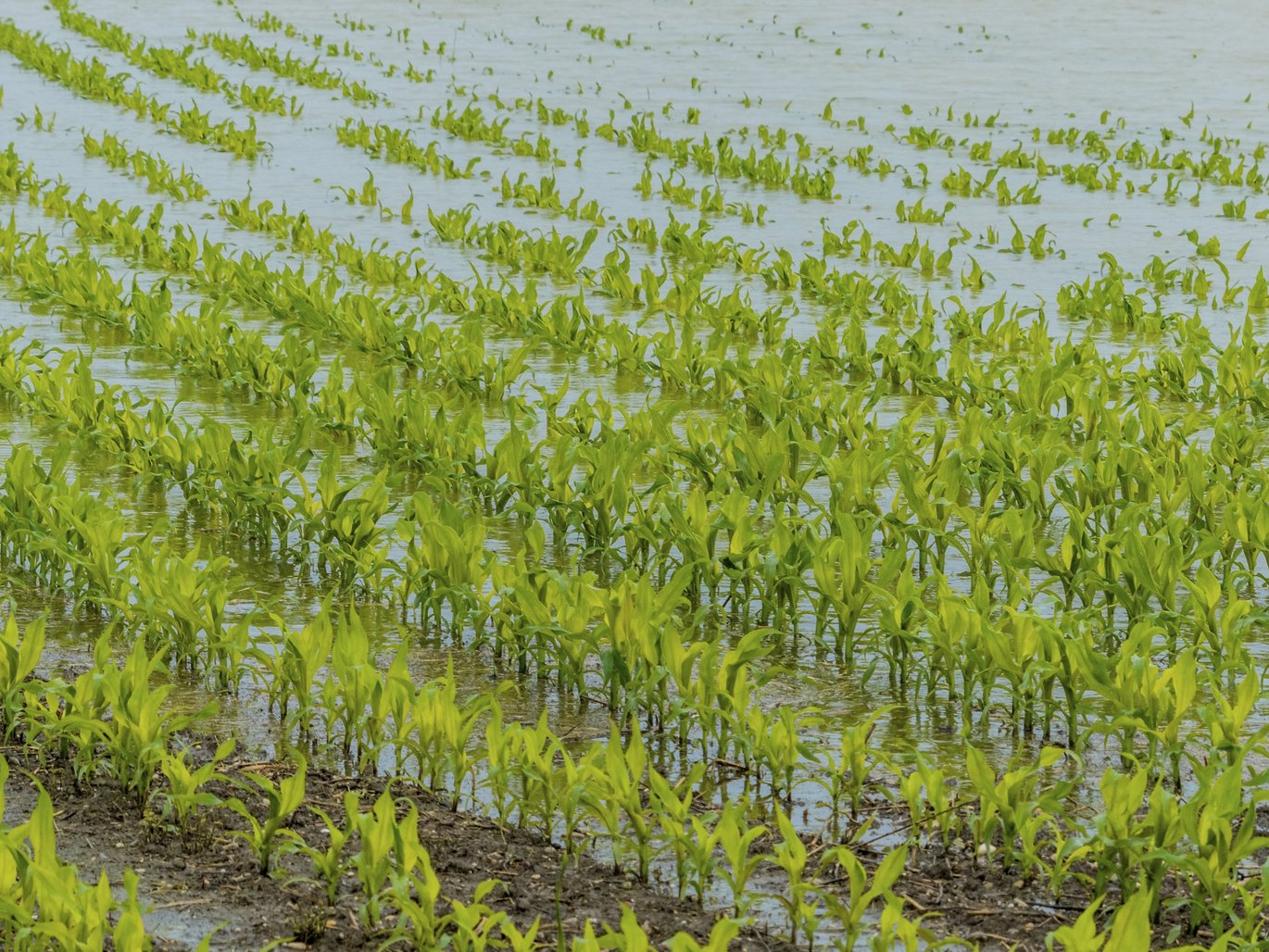Crops for the future climate
A flood can ruin a potato harvest in just 24 hours. However, by understanding the plant's defence mechanisms against flooding, it is possible to create more crop-resistant crops that can withstand flooding. An international research team with the participation of Associate Professor Kim Hebelstrup from the Department of Molecular Biology and Genetics, Aarhus University is working to make plants "waterproof". It will make a difference to the world in terms of ensuring the future supply of food.

The UN Climate Panel, IPCC estimates that global warming increases the risk of extreme weather. That is more drought, more heat waves, heavy rainfall and greater risk of flooding. It is a major problem for agriculture. Like humans, plants need oxygen to survive, which is limited if they are under water. Floods can be at least as damaging to the crops as e.g. drought.
The research team has discovered that some plants quickly become aware that they are underwater when flooded, and that they can quickly initiate some rescue mechanisms to avoid damage. The research team explains how plants use ethylene as a signal to trigger survival reactions under water. Ethylene is a plant hormone that affects processes such as leaf, bud and fruit drop, aging, stem growth, root formation and maturation. Stress naturally increase the ethylene production in plants. Identifying the plant genes that trigger such a mechanism could potentially pave the way for creating crops that will not only be resistant to stress, but may even be flood-resistant.
Quick reactions
“When plants find that they are about to become inundated, they can initiate some processes that increase their chances of survival. They form ethylene, and we have found that it activates the formation of hemoglobin,” Associate Professor Kim Hebelstrup says. He agreed to become part of the research team as he has been investigating the function of hemoglobin in plants all the way back from his PhD studies. Hemoglobin is usually something found in animals and humans, where it is found in the blood and carries oxygen from the lungs to the organs.
“It has been shown that the hemoglobin in plants plays a different role. Namely, ethylene activates hemoglobin formation in the plant. In the plant, it does not carry oxygen, but breaks down a signal gas called nitrogen monoxide (NO). And that is this reaction that activates the survival mechanism that makes the plants flood-resistant,” Kim Hebelstrup explains.
The research team has published an article in Nature Communications describing a number of molecular events that are triggered in plants by flooding. They show that an accumulation of ethylene via hemoglobin in flooded plants triggers the survival response at an earlier stage, even before the oxygen level in the field actually decreases. "It is very useful because a plant that goes into survival mode early will be able to survive underwater for a long time," Kim Hebelstrup says.
The future crops
The discovery offers great potential for the development of flood-resistant crops. "Now that we have characterized the survival mechanism, we have the opportunity to work on selecting and breeding varieties of crops that are proficient in using the survival mechanism," Kim Hebelstrup says, while explaining that the work will continue. "This will make it possible in the future to produce crops that can more easily withstand flooding."
Publication
“Ethylene-mediated nitric oxide depletion pre-adapts plants to hypoxia stress.” Nature Communications, 5 September 2019. Sjon Hartman, Zeguang Liu, Hans van Veen, Jorge Vicente, Emilie Reinen, Shanice Martopawiro, Hongtao Zhang, Nienke van Dongen*, Femke Bosman, George W. Bassel, Eric J.W. Fisherman, Julia Bailey-Serres, Frederica L. Theodoulou, Kim H. Hebelstrup, Daniel J. Gibbs, Michael J. Holdsworth, Rashmi Sasidharan & Laurentius A.C.J. Voesenek DOI 10.1038/s41467-019-12045-4
For more information
Associate Professor Kim Hebelstrup, Department of Molecular Biology and Genetics, Aarhus University. E-mail: kim.hebelstrup@mbg.au.dk. Phone.: +45 8715 8271
